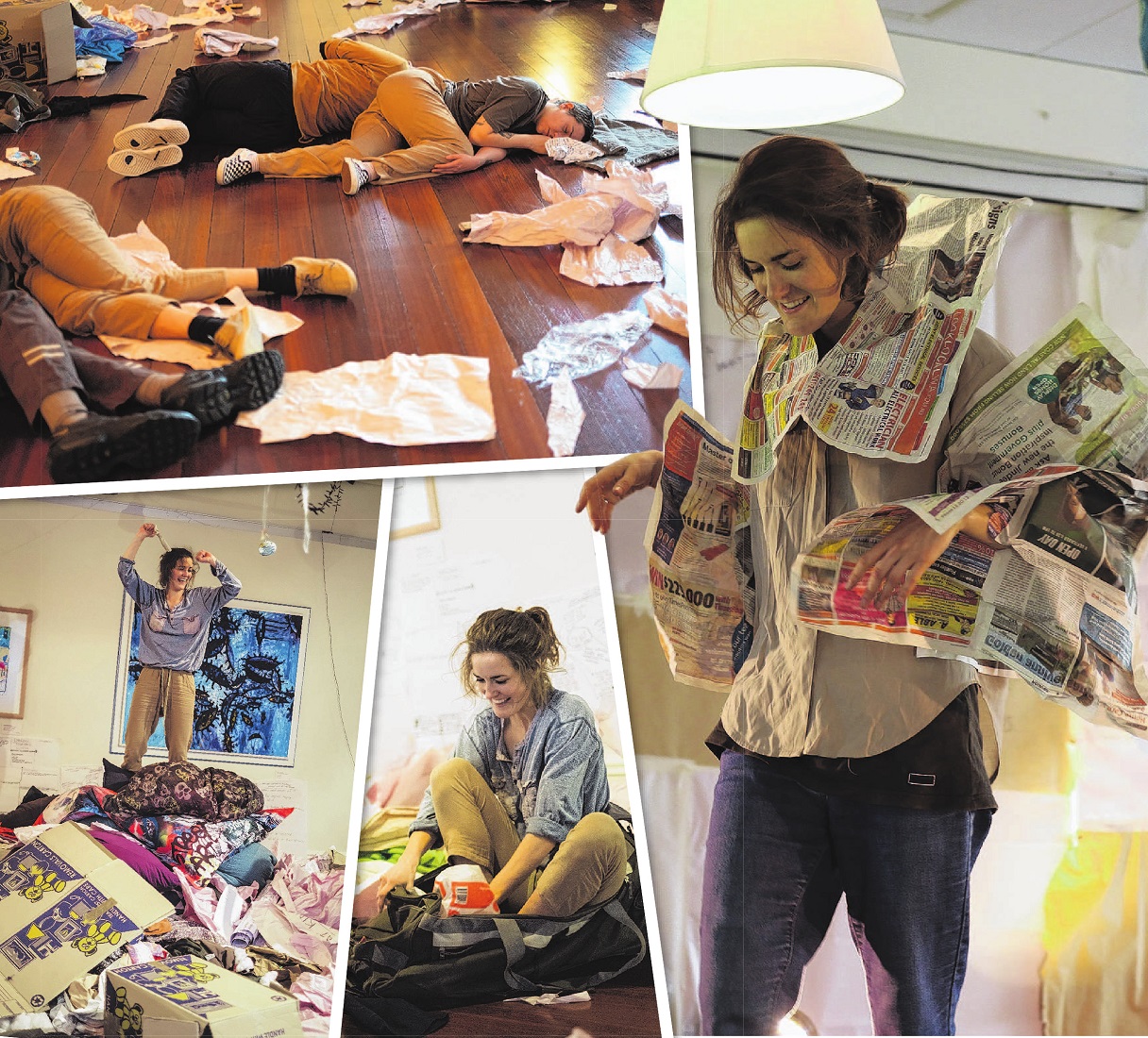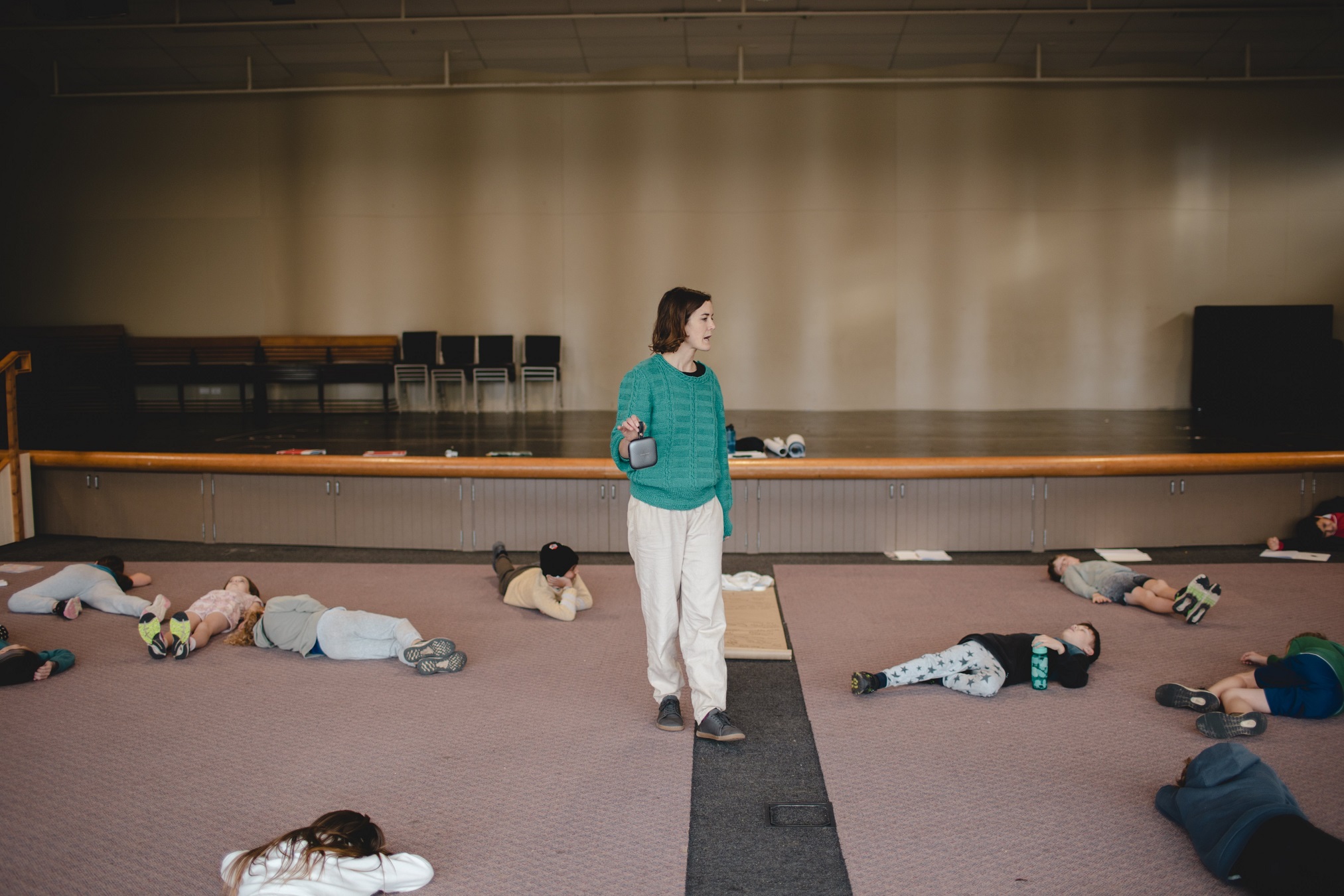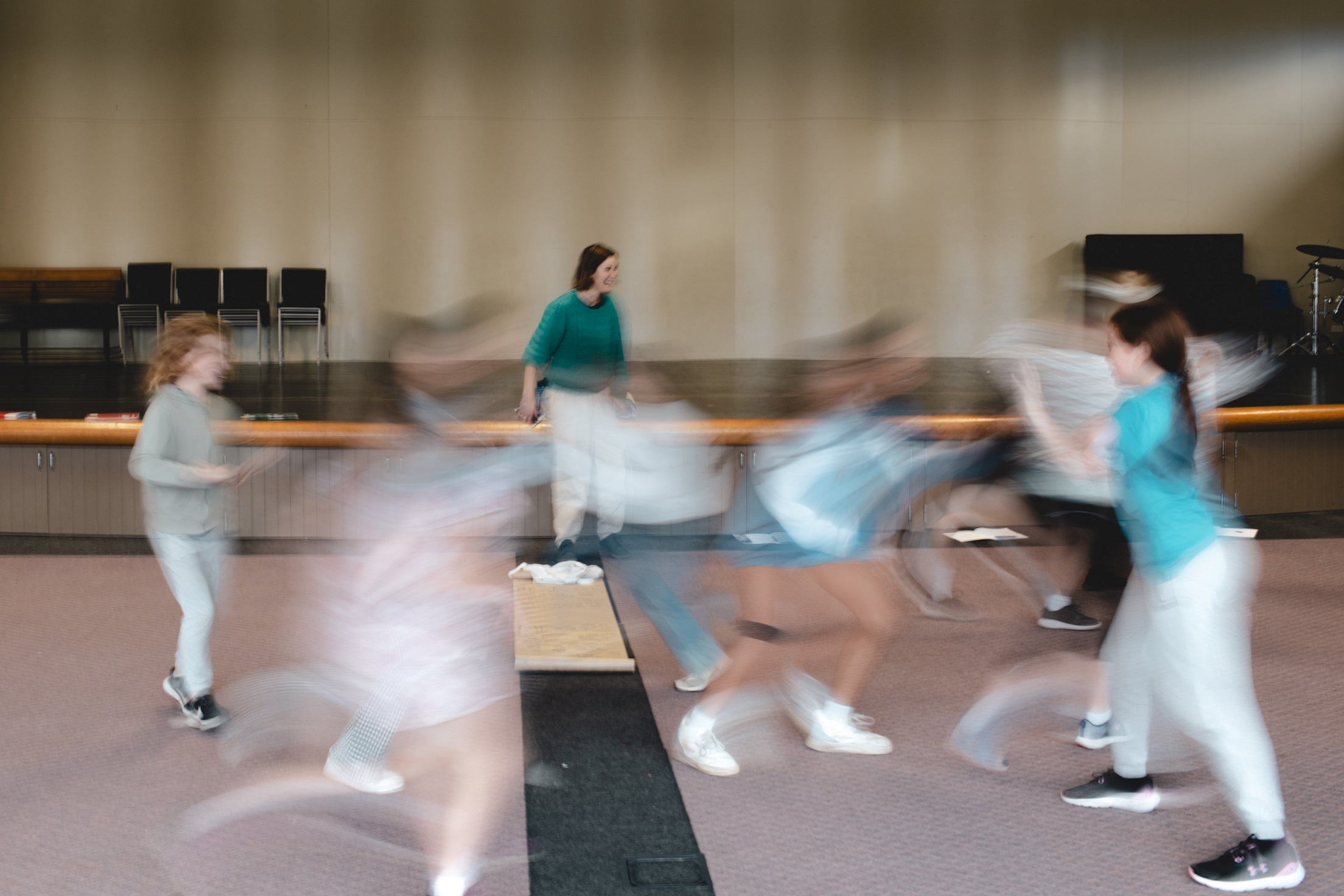
Only a few years ago, Daisy Sanders could not get out of bed.
Now she has moved country, developed a research programme and dances every day.
Five years ago, Sanders struggled to see a positive future. Not long after graduating from performing arts school in Perth, and embarking on a freelance career in dance and choreography she began to notice changes in herself.
"It was a big disruption. I couldn’t get out of bed. I lost a lot of weight."
She was diagnosed with chronic fatigue and endometriosis — two illnesses where the publicity is "you never get better".
"In the first year, I couldn’t really leave the house easily and the second year I couldn’t really work. It was a long and very debilitating illness. There was a long period where I thought I’d never dance again and there was grief around that."
However, accepting that view was not on her agenda.
"I didn’t want to accept that. I thought I could listen to my body and encourage a little bit of healing. It was like I was trying and find a way back to health so I could dance again — that was my motivation."
She began to research her illnesses, sought advice and support from different health professionals including natural health practitioners and Chinese medicine. And she had surgery.
"I had all sorts of health practitioners giving me their perspective. But right in the middle was me listening to my body and dancing with the tiny amount of energy I had."
In the end it changed from "in five years’ time I will dance again" to "dancing is the method, the tool every day to get stronger".
She looked for a positive dance environment and started going to classes again, realising she should not need to apologise for doing only what she could.
"I’d do a little bit and then lie down, maybe going home half way through. I certainly couldn’t do a full dance class at first. It was very, very gradual."
Sanders had to adjust to the "balancing act" her life had become — to not sleep too much as the body deteriorates more and not exercise too much as it can have a kick-back effect. Good-quality sleep and the right amount of activity was the aim.
"One of the philosophies of chronic fatigue is pacing your activities in the day. That led me directly into making this project."
She began to create again, with the first version of "A Resting Mess" developed in an arts forum of multi-disciplinary artists.
"I basically did a durational experiment on myself. In the gallery, I would write on the walls, sleep and rest on the floor when I needed to and get up and dance when I could. I would change between write, rest, dance, listening to what my body asked for."
The biggest thing the "creative experiment" revealed was any performance work she makes crosses the edge between audience and performer.
"Rather than them watching me rest when they walked in, they felt they had permission to rest, creating a space for communal rest, slowing down, a more of a meditative shared state."

"I’m working on something, I’m aware of my body, I’m making dance and choreography works, but I’m thinking all the time about how the community feels. Does it feel safe, supportive? That applies to the performance and if I’ve been teaching."
So when Sanders heard about the University of Otago’s Caroline Plummer Fellow in Community Dance and the story behind it, she knew she had to apply. Plummer, a keen dancer, was a physio-turned-dance and education student at the University of Otago who died of a rare cancer aged 24.
"There was something about Caroline’s story, this sense of who she was, that she was warm and generous and passionate about dance and making people’s life better."
It appealed so much, Sanders applied three times for the fellowship before securing it this year. She packed up her life in Australia and headed for Dunedin earlier this year for six months, settling in Karitane.
"I’ve fallen in love with Dunedin. The landscape is beautiful and I feel there is this creative people energy and people are so supportive."
The temperature change is not too shocking for Sanders as she comes from a mountain town near Canberra, Ngunnawal country, even though she now lives in Western Australia, Whadjuk Noongar country.
Her time in Dunedin is allowing her to further develop "A Resting Mess" and the culmination of her work will be an interactive performance she describes as a community performance installation.
"People will be able to come to have a chat, do some writing on the wall, have a rest, there will be bean bags, a communal nest for reflecting and resting in."
From all the research she will create "interesting and dynamic" choreography for her and a couple of other artists.
"We’ll be dancing and resting with the way energy changes in our bodies. And dancing through a room full of recycled junk materials. It creates images and questions about how we navigate all the mess in the world."
The junk is boxes, paper, soft plastics, pillows and blankets and old furniture.
"It might look like landfill, it might look like a messy bedroom, or somewhere between. It’s supposed to be nostalgic and comforting, but also a bit disturbing as it represents any kind of mess in world that makes us feel restless — representing climate change, bureaucracy; people will read what the mess means."
Different activities happen at different times. Some events will be scheduled and open to the public.
"The work communicates through how it looks and how it feels. The music is a big part of that. It could be quiet and mediative or, at other times, the music will wind up and be more dynamic."
While she wondered who might be interested in her research at the beginning, she need not have worried.
"It turns out everybody, post-pandemic. If anything, it has been ‘how do I share this research and give what I can and do what I can that is sustainable for me’."
The move across countries has encouraged her to go deeper with her research.
"It has pushed me to do my research really well and take care of my body."
In a way it has become a study of creative flow.
"I have to follow the creative practice and let go of the things that are not working. It’s the path of least resistance."

"It kind of means listening to the body and being really present. How am I, how is my energy? How do I want to use that energy? That can mean it’s very bubbly and focused or very quiet; it’s about permission and presence, allowing the body to tell us what we need to do.
"It’s a study of presence really and how we take care of ourselves by being authentic. The world is such a busy place and it asks us to go faster than we want to so much of the time."
She sees her work as a study of how people can get involved sustainably and passionately when they need to, but also know when to go a bit slower or take time out.
"It’s kind of like emotional and energetic intelligence in a way. It’s dance for wellbeing."
Sanders also uses her research in workshops with a range of groups and schools of all levels as well as at the university, not only dance but in education, too, talking about wellbeing for young children.
"I find people leave with a new sense of trust in themselves, a sense of permission, of allowing what is happening. It’s recuperative, it’s restorative."
As part of her project, she is bringing over a sound artist from Australia who she has worked with before. He suffers from neck and jaw pain as a result of playing instruments.
"When he works with me he finds his pain goes away. So some uncanny things happen to people when they are in my work environment."
Sanders also works with poetry a lot so incorporates that into some workshops. Others she targets at particular groups such as looking at the menstrual cycle and how energy and emotions change over a month for women.
"It’s an important part of my research. It’s a way we can respect energy changing in the body. Rest is in the middle but it can go in slightly different pockets."
It is an area of her research strongly influenced by an Australian collaborator Lucy Peach, a folk musician and former sex-education teacher, whom she worked with at a schools’ residency last year.
"We did a menstrual cycle flash mob in a school playground."
Sanders’ time in Dunedin is going too quickly and she appreciates that she has been able to made some great connections with people in the community.
"I feel like everything is going to come together and then I have to go."
Whatever happens, she believes her fellowship will be a success if her work has provoked reflection.
"I want them to reflect on rest, on burnout, on environmental crisis, and how we grapple with all these challenges in the world."
TO SEE
"A Resting Mess", 54 Moray Pl, 8th floor, public sessions July 20-22, 2pm-5pm; opening event July 22, 2pm; "Dancing with Rest" July 25 and August 1, 6pm-7.30pm; "Collective Rest", July 28, 1pm-2pm; final performance and community meal August 5, 4pm-6pm.
For further information, contact












